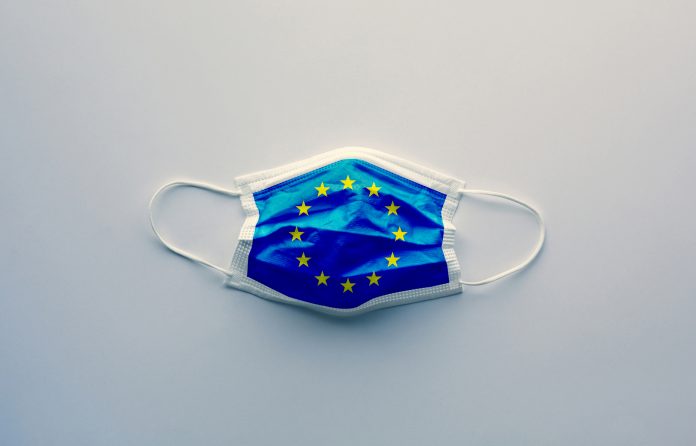Open Access Government explores the European Commission’s Department of Health and Food Safety’s response to the COVID-19 crisis and charts their next steps towards a vaccine for every European citizen
Since 1 July 2020, Sandra Gallina has been the Deputy Director-General for Health and Food Safety (DG SANTE) replacing Martin Seychell, working in the department responsible for EU policy on food safety and health and for monitoring the implementation of related laws. In a previous article written by Seychell for Open Access Government, he stated that “at the European Commission, we strive to reach the right balance between innovation, transformation and accessibility.” In assuming this new role, Gallina’s priorities will follow on from this, and will form through supporting Member States in improving the quality and sustainability of health systems, as well as ensuring enforcement of EU laws on food safety and animal and plant health.
The department plans to develop a new chapter for health in Europe, one that is well-equipped to deal with the on-going COVID-19 crisis and its aftermath. EU Commissioner for Health and Food Safety Stella Kyriakides stated earlier this year that “sustainability, digital transformation, and reinforced resilience will be our compasses to move forward.” The pandemic has highlighted many areas that need to be strengthened, such as:
- A resilience to crises, with mechanisms for prevention and preparedness.
- Supply chain weaknesses, in particular, for pharmaceuticals and supply chain management – so-called “green lanes” to ensure continued movement of goods.
- The ability to deliver universally accessible and affordable food, medicines, and healthcare long-term, despite any crisis or hurdles that Europe may encounter.
One initiative able to strengthen these areas comes in the form of the new EU Health Programme, EU4Health. EU4Health is a stand-alone programme with a significantly increased budget of 9.4 billion – 23 times larger than it was at the beginning of 2020. It is a paradigm shift in the way Europe looks at health. “COVID-19 has taught us that Europe needs to give a higher priority to health, to enable it to respond better to epidemics and other unforeseen health threats,” added Commissioner Kyriakides. The programme is investing in three key areas: preparedness and prevention, available and affordable medicines, and lastly, building stronger health systems using digital tools. This programme is not only responding to the lessons learned through the rise of COVID-19, (which has indeed undoubtedly altered EU Health priorities), but also will help Europe to implement other health strategies moving forward, such as the EU’s Cancer Plan and the Pharmaceutical Strategy.
A COVID-19 vaccine
In September 2020, the European Commission signed a second contract to ensure access to a potential COVID-19 vaccine. The contract will allow all EU Member States to purchase up to 300 million doses of the Sanofi-GSK vaccine. Moreover, Member States may also donate any reserved doses to lower and middle-income countries. Sanofi and GSK will also endeavour to provide a significant portion of their vaccine supply through a collaboration with the COVID-19 Vaccines Global Access (COVAX) facility – the vaccine pillar of the Access to COVID-19 Tools Accelerator for lower and middle-income countries – in a timely manner. Participation in the COVAX Facility will ensure equitable access to affordable COVID-19 vaccines. This is part of the European strategy to accelerate the development, manufacturing, and deployment of effective and safe vaccines against COVID-19, which the European Commission presented on 17 June 2020.
Stella Kyriakides, Commissioner for Health and Food Safety said: “Being part of the COVAX Facility means ensuring its success and providing access to vaccines for low and middle-income countries. It means ensuring access not only for those who can afford it – but to all citizens globally. And it means showing solidarity and global leadership. It is only together that we will be able to overcome COVID-19.”
Sandra Gallina recently debated the EU vaccines strategy with members of the Public Health Committee, discussing efforts to develop, authorise, and make COVID-19 vaccines safely available to European citizens. She stressed that a good vaccine must be efficient, safe, affordable, developed quickly and able to achieve EU market authorisation. As stated in the European Parliament Press Release for this event, she particularly underlined that the EU is fully committed to a global approach where vaccines must be available to all including in low-income countries as we will not be safe until everybody is safe.
The need for transparency
The members of the Public Health Committee made it clear that full transparency is critical to achieving trust in COVID-19 vaccines, and the Chair of the meeting “regretted that more information on the Commission’s work related to the purchase agreements for COVID-19 vaccines so far had not been shared proactively by the Commission.” Going forward, transparency will be a priority, and Gallina backed this up by disclosing that “the first vaccinations should start already towards the end of this year and a significant number of vaccines should become available in the first part of 2021. Vaccines would be distributed to member states based on population size.”
2020 has shown more than ever how important global responsibility and solidarity are regarding Health policy priorities, including accessible food and nutrition, mental health, and digital health solutions. A mobilised, transparent, and strong European Health policy is indispensable to manage the biggest public health crisis humanity has faced in 100 years.
Open Access Government











